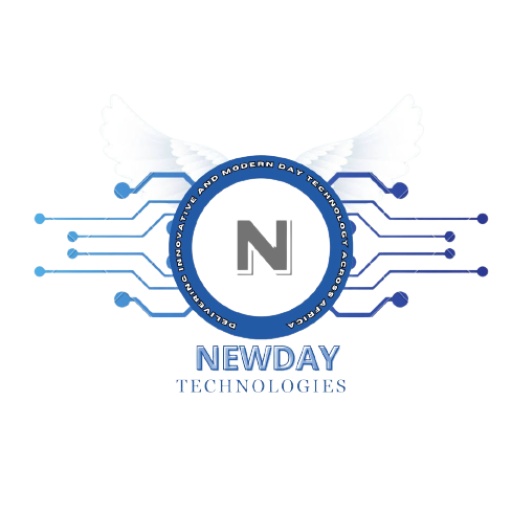In the ever-evolving landscape of technology, (Global Positioning System) GPS emulators have emerged as indispensable tools for various applications. These emulators replicate the functionalities of real GPS systems, offering a wide array of benefits across industries such as telecommunications, transportation, and location-based services. In this article, we delve into the intricacies of GPS emulators, shedding light on their significance, applications, and the impact they have on technology-driven sectors.
Key Points:
-
Understanding GPS Emulators:
GPS emulators are devices or software solutions designed to mimic the signals and behavior of GPS satellites. They serve as powerful tools for testing and development, allowing engineers and developers to simulate different geographical scenarios without the need for physical movement.
Here are some key points to understand about GPS emulators:
-
Simulation of GPS Signals:
- GPS emulators generate signals that imitate those transmitted by actual GPS satellites. These signals typically include information such as satellite position, velocity, and time, allowing devices equipped with GPS receivers to determine their location.
-
Testing and Development:
- One of the primary purposes of GPS emulators is to facilitate testing and development of GPS-enabled devices and applications. Engineers can use emulators to assess how a device behaves under different conditions, such as varying satellite constellations, signal strengths, or atmospheric disturbances.
-
Scenario Replication:
- GPS emulators enable the creation of specific scenarios, including different geographical locations, speeds, and altitudes. This helps developers test the performance of navigation systems and location-based services in diverse environments without physically moving the devices.
-
Real-world Challenges:
- Emulators allow developers to introduce challenges that devices might encounter in the real world, such as signal interference, multipath effects, and changes in satellite visibility. This helps ensure the robustness and reliability of GPS-based applications.
-
Cost and Time Savings:
- Using GPS emulators reduces the need for physical movement to various locations for testing. This can lead to significant cost savings and time efficiency in the development process, especially when testing in remote or inaccessible areas is impractical.
-
Multi-Constellation Support:
- Advanced GPS emulators often support multiple satellite constellations, including GPS, GLONASS, Galileo, and BeiDou. This capability allows developers to evaluate the performance of devices across different global navigation satellite systems (GNSS).
-
Security Testing:
- Emulators are valuable tools for assessing the security of GPS-based systems. By simulating various attack scenarios, such as spoofing or jamming, developers can identify vulnerabilities and implement robust security measures.
-
Compliance Testing:
- GPS emulators assist in compliance testing, ensuring that devices meet industry standards and regulatory requirements. This is particularly important in sectors where accurate and reliable location information is critical, such as aviation, transportation, and emergency services.
GPS emulators are indispensable tools for engineers and developers, providing a controlled and efficient environment for testing and refining GPS-enabled devices and applications.
-
Applications Across Industries:
Here are a few more examples:
-
Agriculture:
- GPS emulators are used in precision farming, allowing farmers to test and optimize GPS-guided equipment for tasks such as planting, harvesting, and crop monitoring. This helps improve efficiency and yield.
-
Aviation:
- In the aviation industry, GPS emulators are utilized for testing avionic systems and navigation equipment on aircraft. This ensures accurate and reliable navigation in different flight conditions.
-
Emergency Services:
- GPS emulators play a role in testing location-based services for emergency response systems. This is crucial for ensuring that emergency personnel can accurately locate individuals in distress and respond promptly.
-
Surveying and Mapping:
- Professionals in surveying and mapping use GPS emulators to simulate different geographic scenarios. This helps optimize the performance of surveying equipment and ensures the accuracy of mapping data.
-
Oil and Gas Exploration:
- GPS emulators are employed in the oil and gas industry to test and enhance the performance of GPS-based systems for exploration and drilling. This ensures precise positioning and navigation in remote and challenging environments.
- Construction:
- GPS emulators find applications in the construction industry for testing and optimizing heavy machinery equipped with GPS technology. This improves the efficiency and accuracy of construction projects.
-
Environmental Monitoring:
- In environmental research, GPS emulators are used to simulate movement patterns for tracking wildlife or monitoring environmental changes. This aids in the study of ecosystems and biodiversity.
-
Sports and Fitness:
- Wearable devices and sports equipment often utilize GPS technology. GPS emulators help developers test and refine the accuracy of location tracking in sports and fitness applications, providing users with reliable data.
-
Consumer Electronics:
- Smartphones, fitness trackers, and other consumer electronics often incorporate GPS functionality. GPS emulators are valuable in the development and testing of these devices, ensuring that location-based features work as intended.
-
Logistics and Supply Chain:
- GPS emulators are used in logistics to optimize route planning and monitor the movement of goods. This improves the efficiency of supply chain operations by ensuring timely and accurate deliveries.
Overall, GPS emulators contribute significantly to the development, testing, and optimization of location-based technologies across a diverse range of industries.
-
Benefits and Advantages:
Here are a few more points to elaborate on the advantages:
-
Risk Mitigation:
- Emulators provide a controlled environment for testing, allowing developers to identify and address potential issues before deploying a system in the real world. This helps in mitigating risks associated with system failures or inaccuracies.
-
Time Efficiency:
- Testing in the field can be time-consuming, especially when dealing with scenarios that are challenging to replicate. Emulators enable quick and efficient testing of various conditions, saving time in the development and validation process.
-
Reproducibility:
- Emulators offer the ability to reproduce specific test scenarios consistently. This reproducibility is crucial for debugging and fine-tuning GPS-based systems as developers can recreate problematic situations and observe how the system behaves.
-
Scalability:
- Testing in the field may be limited by the availability of physical space and resources. Emulators provide scalability, allowing developers to simulate a large number of devices and scenarios concurrently, which might be challenging in a real-world setting.
-
Controlled Testing:
- Emulators provide a high level of control over testing conditions, allowing developers to focus on specific aspects of the system. This controlled environment is essential for isolating variables and understanding the system’s behavior under different conditions.
-
Reduced Dependency on External Factors:
- Physical testing often depends on external factors such as weather conditions or the availability of specific locations. Emulators eliminate these dependencies, providing a consistent testing environment regardless of external factors.
-
Early Testing in Development:
- GPS emulators enable early-stage testing in the development process, allowing developers to identify and address issues at a stage where modifications are more cost-effective and less time-consuming.
-
Customization:
- Emulators offer the flexibility to customize test scenarios based on the specific requirements of the GPS-based system being developed. This customization ensures that the system is thoroughly tested under diverse conditions.
GPS emulators play a crucial role in streamlining the testing process for GPS-based systems, offering a range of benefits from cost-effectiveness to controlled and reproducible testing environments. These advantages contribute to the overall efficiency and reliability of the development and deployment of GPS technologies.
-
Challenges and Future Developments:
- Jamming and Spoofing Countermeasures: With the increasing threats of jamming and spoofing attacks on GPS systems, future developments in GPS emulators will likely focus on more robust countermeasures to enhance the security of navigation and positioning systems.
- Multi-Constellation and Multi-Frequency Support: To improve accuracy, reliability, and coverage, GPS emulators are expected to support multiple satellite constellations (such as GPS, GLONASS, Galileo, and BeiDou) and operate across various frequency bands. This requires addressing challenges related to synchronization and compatibility.
- Realistic Dynamic Environments: Enhancing the realism of GPS emulation in dynamic environments, such as urban canyons, tunnels, or indoor spaces, poses a significant challenge. Future developments may involve better modeling of signal reflections, multipath effects, and other environmental factors to provide more accurate testing scenarios.
- Cybersecurity and Resilience: As GPS systems become more integrated into critical infrastructure and autonomous systems, ensuring cybersecurity and resilience against cyber threats becomes paramount. Future GPS emulators may incorporate advanced security features to simulate and test resistance against cyber-attacks.
- Machine Learning and AI Integration: Integrating machine learning and artificial intelligence into GPS emulators could lead to more adaptive and intelligent testing scenarios. This may involve using AI to dynamically adjust signal parameters or emulate complex scenarios based on real-world data.
- User Authentication and Privacy: With the growing concerns around user privacy and the need for secure location-based services, future GPS emulators may focus on simulating scenarios related to user authentication, secure communication, and privacy protection in navigation systems.
- Energy-Efficient and Low-Power Designs: To meet the requirements of battery-powered devices and IoT applications, future GPS emulators may need to focus on energy-efficient and low-power designs. This involves optimizing algorithms and hardware components to reduce power consumption without sacrificing performance.
- Standardization and Interoperability: As the field of GPS emulation expands, there is a need for standardization and interoperability among different systems and devices. Future developments may involve the establishment of industry standards to ensure compatibility and seamless integration between various GPS emulators and user equipment.
Addressing these challenges and embracing future developments will contribute to the continued improvement and innovation in GPS emulation technology, supporting advancements in navigation, communication, and location-based services.
Conclusion:
GPS emulators stand as indispensable tools in the realm of technology, providing a cost-effective and efficient means to test and develop location-based systems. As industries continue to rely on accurate positioning information, the role of GPS emulators is set to expand, driving innovation and ensuring the reliability of location-based technologies across various sectors.


Very interesting topic, appreciate it for posting.Blog range